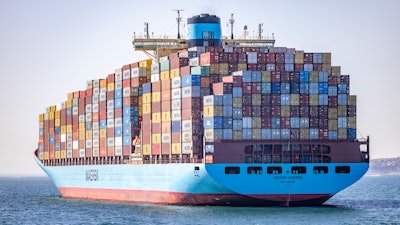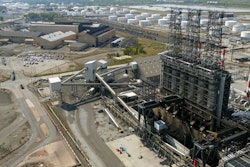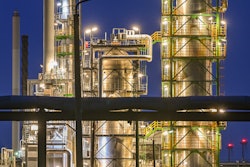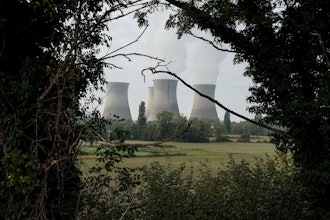
A significant contributor to greenhouse gas emissions is maritime trade. Eighty percent to ninety percent of all international trade happens by marine transport, which moves more than ten billion tonnes of containers, solid, and liquid bulk cargo yearly.
Two to three percent of global greenhouse gas (GHG) emissions are attributed to marine transportation, and that number is expected to rise to seventeen percent by 2050 if nothing is done.
Likewise, the International Maritime Organization (IMO)'s 2020 study on greenhouse gasses reports that in 2018 alone, global shipping sent about 1.05 billion of carbon dioxide into the air. This was about 2.9% of the total amount of CO2 that humans put into the atmosphere that year.
E-fuels To The Rescue
If ships started using low-carbon alternative fuels instead of those made from petroleum, the carbon footprint of shipping might be dramatically decreased.
Consequently, environmentalists have proposed e-fuels as an alternative to help lower the carbon footprints of shippers.
As a result, by 2030, shippers hope to reduce emissions by at least 40 percent from their 2008 levels, following international commitments established by IMO member nations in 2018. The strategy requires a 50% reduction in GHG emissions by 2050 and a complete end to ship emissions by the middle of this century.
E-fuels, which include e-methanol, e-methane, and e-kerosene, are fuels produced from electricity that has been cleaned of carbon and are available in gas or liquid form. On the other hand, conventional fuels (biofuels) are mostly made out of biomass.
E-fuels are a key part of strategies to reduce carbon emissions because they make combustion engines much less polluting. When the entire manufacturing process is considered, their carbon footprint is far lower than that of fuels made from oil because they are climate neutral.
E-fuel reduces greenhouse gas emissions to zero and compensates for any remaining emissions to achieve a net-zero emissions balance.
Reality In Sight
All parties in the maritime industry are doing all they can to make the usage of green fuels and shipping decarbonization a reality.
Maersk, a Danish shipping corporation and the world's largest container shipping line and vessel operator, has taken significant steps toward a green transition. They recently announced plans to use e-methanol to fuel their box ships and placed an order for a dozen methanol-fueled cargo ships, the first of which they plan to launch next year.
In July of 2021, Maersk already announced that it was building a 172-meter-long feeder ship that would run on either e-methanol or minimal sulfur fuel oil, which is due to start working in Northern Europe in 2023. The shipping giant also partnered with six energy and fuel companies to source at least 730,000 metric tons of green methanol by the end of 2025.
To address the demand for methanol as a "promising" future fuel. Auramarine, a Finnish fuel systems provider, has also invested in creating one of the first methanol fuel delivery units.
Similarly, startups are developing innovative ways to deliver clean energy sources to help meet net-zero ambitions. And they are receiving the necessary finance to meet the demand for green fuels. Over the past 24 months, searches for " e-fuel " have grown by 356%.
This trend's popularity increase is primarily attributable to the increase in funding for businesses in this industry. According to Pitchbook, VC financing for these firms is already nine times more than in 2021 as of Q2 2022.
Only recently, the Danish startup Blue World Technologies raised €37 million ($36.9 million) from investors, including Breakthrough Energy Ventures, founded by Bill Gates, to scale up production of a new technology that might use methanol to power large ships.
Final Words
By and large, the project in Kassø, commissioned by European Energy and provides the e-methanol supply for Maersk's first e-methanol-driven container vessel, catalyzes any sizable scale. And at a good time at that, considering the current environmental risk and the geopolitical tensions the world is experiencing. No doubt, these events have powered the green energy shift. By attracting further funding and creating a "critical mass," this project's success will lower costs and make e-Methanol a completely viable fuel for the future.






















